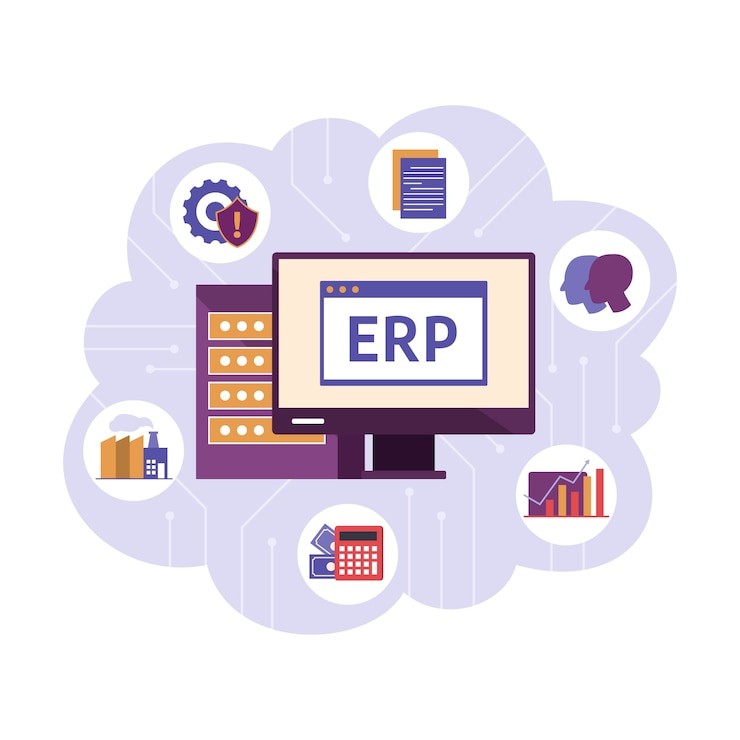Choosing an ERP system isn’t just about software. It’s about your entire business—from operations and finance to inventory and customer management. According to a report by Panorama Consulting, around 50% of ERP implementations fail to meet expectations. That stat alone shows why it’s important to take your time and choose the right system from the start.

If you’ve been asking, “How to choose the right ERP system for my business?”, you’re not alone. It’s a common question—and a crucial one. The right ERP can help you streamline tasks, reduce costs, and support future growth.
But how do you find the best fit? Let’s break it down.
-
Understand Your Business Needs First
Start by mapping out what your business actually needs. What problems are you trying to solve? Are your current systems slow, outdated, or disconnected? Do you need better inventory control or real-time financial data?
Before you even look at ERP systems, list out:
- Pain points in your current process
- Departments that need better visibility
- Functions you must have (like CRM, payroll, or reporting)
Knowing what matters most to your team will help you avoid shiny software features you don’t actually need.
-
Set a Realistic Budget and Timeline
ERP systems aren’t one-size-fits-all. They vary in price based on features, number of users, and deployment type (on-premise vs. cloud). Be upfront about your budget early in the process.
Also, don’t underestimate the time it takes to get an ERP up and running. Most businesses benefit from project-based consulting or staff augmentation to manage the setup phase smoothly.
-
Compare Cloud vs. On-Premise
A big decision you’ll need to make: Should you go cloud-based or on-premise?
Many businesses today are moving toward cloud solutions—and for good reason.
What are the benefits of cloud ERP migration?
Here are just a few:
- No need for costly hardware
- Easier updates and upgrades
- Access from anywhere (great for remote teams)
- Strong data security and automatic backups
- Scalability as your business grows
Cloud ERP is often more flexible and easier to maintain. It’s ideal for businesses that want lower upfront costs and faster deployment.
-
Evaluate Integration Capabilities
Your ERP system shouldn’t stand alone. It should connect smoothly with other tools—like your CRM, HR software, eCommerce platforms, or accounting apps.
Ask these questions:
- Does it support the software we already use?
- Can it connect through APIs or plug-ins?
- Will we need extra tools for integration?
Smooth integration can save you from future headaches.
-
Look at Industry-Specific Features
Some ERP systems are built for specific industries like manufacturing, retail, or distribution. These often come with built-in tools and workflows tailored to your business.
For example, if you’re in the food industry, you may need batch tracking and regulatory compliance tools. If you’re in services, time tracking and billing may be more important.
When researching options, make sure your ERP supports your industry needs—without the need for too many workarounds.
-
Consider User Experience and Training
Even the best ERP system won’t help if your team can’t use it. Look for platforms that have a clean, simple interface. Ask for a demo and involve real users from your team in the process.
Also, check what kind of training and support the vendor offers. Some provide live sessions, while others offer self-paced tutorials or documents. Make sure your team feels confident before going live.
-
Think About Vendor Support and Updates
Don’t forget to evaluate the vendor too—not just the software.
A good ERP partner will:
- Offer responsive customer support
- Help during setup and after launch
- Provide regular updates to improve features or fix bugs
Read reviews, check references, and ask about their support process.
-
Work with the Right Implementation Team
Even the best software needs the right people behind it. That’s where ERP implementation services come in. A skilled team can guide the process, handle data migration, and train your staff.
If you’re unsure where to begin, working with an ERP implementation consultant can make things smoother. They bring real-world experience and know how to avoid costly mistakes. You can bring them on for short-term support, or longer if needed.
-
Ask the Right Questions Before You Decide
Here are a few final questions to ask before choosing an ERP:
- How long will implementation take?
- What’s the cost breakdown (license, services, support)?
- Can I scale the system as we grow?
- Are there any hidden fees?
- What kind of training is included?
Final Thoughts: Let’s Make ERP Easy for Your Business
Choosing the right ERP system doesn’t have to be daunting—it’s a smart move that can take your business to the next level. With the right solution, you’ll streamline processes, boost efficiency, and make data-driven decisions that propel growth.
But you don’t have to navigate this process alone. Integrity Resource Management is your trusted partner, ready to guide you through the entire ERP selection and implementation process. With expert ERP implementation consultants and tailored ERP implementation services, they’ll help you make the best choice for your business—no stress, no guesswork.
Why wait? Let Integrity Resource Management handle the complexity while you focus on what you do best. Visit Integrity Resource Management and get the support you need to make your ERP journey a smooth and successful one!












